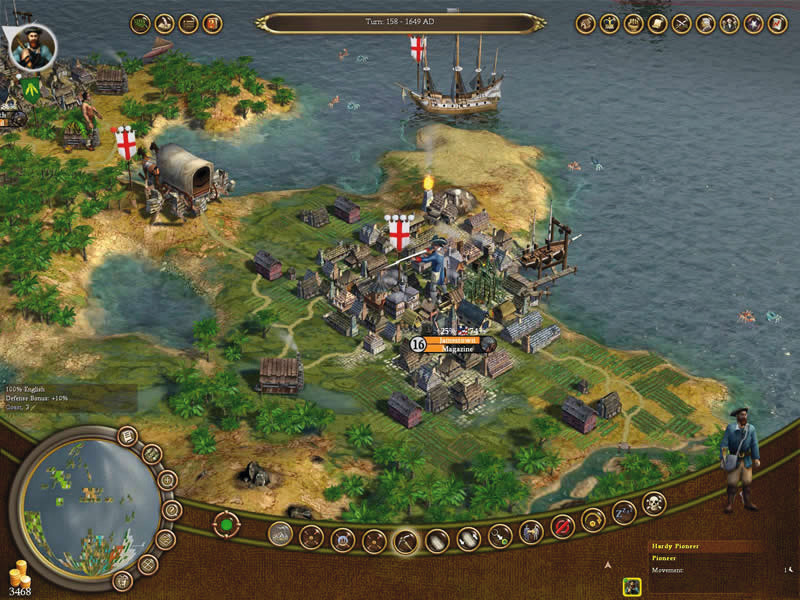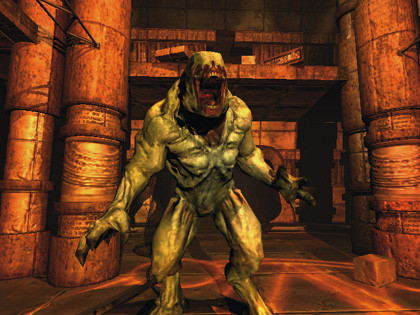Four legends who changed gaming
John Carmack, Alexey Pajitnov, Sid Meier and Nolan Bushnell interviewed

Demi-god and one of the founders of id software, John Carmack defined the way that shooters could take on a first person perspective in games like Wolfenstein 3D and Doom.
The latter was an impressive technical feat that offered up full texture mapping, superb use of light and shading, terrifying implementation of darkness and, of course, 3D graphics.
John Carmack is one of the most influential people in his field and has been inducted into the Academy of Interactive Arts and Sciences Hall of Fame, and is the only game designer to be honoured twice by the National Academy of Television Arts & Sciences.

Tamsin Oxford: How does it feel to be considered a gaming legend?
John Carmack: Gravitas definitely has some perks, but for the most part gaming legend related activities, like awards ceremonies, speaking panels, and (ahem) interviews are distractions from the work that I would rather be doing. (laughs) I do enjoy mingling with the crowd at Quakecon, where everyone is having a great time celebrating the work we have done over the years, and I can't help but feel a bit moved when I get deeply sincere emails from people thanking me for being a positive influence or inspiration to them over the years.
On a couple of rare occasions I have pulled the gaming legend card when I just don't have the time to slowly convince someone on a contentious development issue, and it just comes down to: "No. That is not The Right Thing To Do", but I feel a bit dirty afterwards. It isn't a proper way to resolve a point, and I'm not thrilled when I see people using me in an Appeal to Authority argument either.
TO: Did you ever expect Doom would become the huge success it is today?
Sign up for breaking news, reviews, opinion, top tech deals, and more.
JC: We knew it was going to be a huge deal while we were making it, but I can't say that I was thinking about how it would be looked at by people a decade after its release.
TO: While developing Doom did you have a "Eureka!" moment when suddenly everything fell into place?
JC: The original Doom's development actually went fairly smoothly, and I don't recall any significant periods of doubt about it. Certainly games like Quake, Doom 3, and Rage have been much more challenging development processes.
TO: Can you tell me one thing that nobody else knows about the days of Doom that captures the mood and the memories for you?
JC: To help me focus on a tough issue, I was taking my work away from the noisy office, back to my apartment. I was pulling a sleek, black magnesium NeXT workstation out of the Ferrari 328 I had just bought (yes, I was living in an apartment complex with a Ferrari) and I had to pause to appreciate the moment.
Awesome computer. Awesome car. An uninterrupted evening to work on a challenging problem. Life is good. I still remember that I was working with a dataset that eventually became E1M4 in Doom 1.
TO: What do you see as the next step for game development, what new wonders are left to be uncovered?
JC: Graphics will continue to get better and the next generation of hardware and software will be able to make current games look fairly primitive, but we are past the knee of the curve in effort / benefit there. Games already look really great today, and there are few creative visions that can't be pulled off at least fairly well. Major changes in IO devices will bring the biggest wonders.
The impact that the Wii has made with a really poor motion sensor is worth noting, and there are much better technologies available now. Displays are already about as good as we could want for games in terms of resolution and update rate, but very high dynamic range display technologies will offer significant perceived improvements.
Eventually, we will get to whole body sensing and some display technology that covers more of the user's field of view and we will be heading for Holodeck 0.1. A lot of important innovation will be in the unglamorous fields of just removing friction in the game development process – instead of optimising for frames per second, more effort will be expended on optimising for output per designer or development team. There are probably some very positive non-linearities when friction gets low enough.

TO: Can you play another game without analysing how it works and what can be improved or can you let yourself go and get lost in the game?
JC: I usually focus on the positive aspects of things, but there is always some part of my brain that is noticing software flaws and contemplating solutions to them.
TO: What game are you playing right now? Is it any good?
JC: Almost all of my videogame playing time is with my five-year-old son, so it involves a lot of Mario, Zelda, and Lego games on the Wii and DS. I was just starting to enjoy playing a daily game of Quake Live at work when things got crushingly busy again.
TO: Considering how few games are being made specifically, or exclusively, for the PC and how consoles are galloping up the lines, do you believe that this is the end of the PC for gamers?
JC: For the traditional 'buy it and play through it' sort of action game, the consoles are, and probably will remain, a more appealing platform for most games developers. That said, almost any developer would have loved to have made games like World of Warcraft or The Sims on the PC. I'm quite sure there are still awesomely cool and important interactive entertainment projects yet to appear on the PC, but you probably won't buy them in a box at the store.